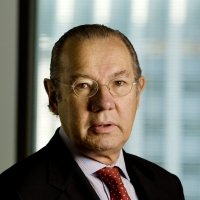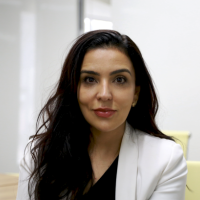What to Expect from Secretary Blinken’s Visit to Brazil
On February 21, 2023, the Wilson Center’s Brazil Institute and Latin American Program hosted a virtual conversation featuring former Brazilian Ambassador to the US Rubens Barbosa and former US Ambassador to Brazil Liliana Ayalde to discuss Secretary of State Antony Blinken visit to Brazil for the G20 foreign ministers’ summit as well as future cooperation between the United States and Brazil.
Ambassador Barbosa emphasized the current challenges in the Brazil-United States relationship, citing reduced investment and trade ties, political polarization in both countries, and a diminishing U.S. focus on the region. “The Brazil-United States relationship [is navigating through] a very challenging moment, perhaps one of the most challenging moments in our bilateral relationship,” said Ambassador Barbosa.
Ambassador Barbosa identified potential areas for collaboration, particularly in minerals and strategic industries, citing Brazil’s recent approval of a new industrial policy as a catalyst for opportunities. Ambassador Ayalde highlighted the G20 hunger alleviation agenda as a promising avenue for bilateral cooperation, emphasizing the significant roles both countries play as major food producers.
Discussing Secretary Blinken’s agenda for Brazil, Ambassador Barbosa outlined priorities, including strengthening economic ties, environmental programs, and addressing regional challenges from Venezuela to Haiti. However, he cautioned against expecting major initiatives or proposals.
Assessing President Lula’s foreign policy priorities, Ambassador Barbosa noted, “he tried to punch above his weight, trying to influence the war in Ukraine, the war in Gaza, and there are limitations. We should recognize that Brazil, in terms of foreign policy, has no power, has no strength to interfere in this area.” He suggested a focus on areas where Brazil holds significant strength, such as environment, food security, and energy transition, while acknowledging limitations in influencing global conflicts.
Both ambassadors underscored the importance of Brazil actively advocating for democracy and engaging in regional crises, particularly emphasizing Brazil’s substantial interests in Venezuela compared to the United States.
Speaker

Introduction

Moderator

Hosted By

Brazil Institute
The Brazil Institute—the only country-specific policy institution focused on Brazil in Washington—aims to deepen understanding of Brazil’s complex landscape and strengthen relations between Brazilian and US institutions across all sectors. Read more


Latin America Program
The Wilson Center’s prestigious Latin America Program provides non-partisan expertise to a broad community of decision makers in the United States and Latin America on critical policy issues facing the Hemisphere. The Program provides insightful and actionable research for policymakers, private sector leaders, journalists, and public intellectuals in the United States and Latin America. To bridge the gap between scholarship and policy action, it fosters new inquiry, sponsors high-level public and private meetings among multiple stakeholders, and explores policy options to improve outcomes for citizens throughout the Americas. Drawing on the Wilson Center’s strength as the nation’s key non-partisan policy forum, the Program serves as a trusted source of analysis and a vital point of contact between the worlds of scholarship and action. Read more
